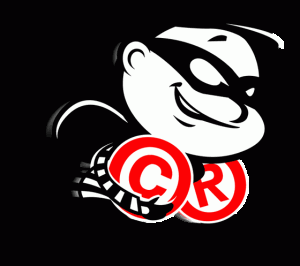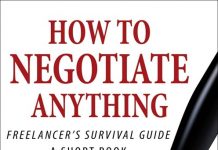 You Bought It, You Own It (EFF)
You Bought It, You Own It (EFF)
You bought it, you own it, right? Not always. Over the past decade, we have been quietly shifting to a world in which both digital goods (like mp3s, video files, and ebooks) and physical goods that contain software (like cars, microwaves, and phones) are never truly owned, but only rented.
***
Hardcore Readers Prefer to Buy from Kobo and Amazon (GoodeReader)
Good e-Reader conducted a one month research project where we polled 250 people about their favorite online bookstore of choice. Good e-Reader users tend to be savvy, well educated and not afraid of new technologies. These are basically the hardcore users that often buy 50-100 books a year and often have more than one e-reader in the household.
***
Why 2014 Will be the Year of the iPad for Me (GigaOM)
For a long time, I never thought I’d be able to give up my Mac as my primary personal computing device. But thanks to some advances in hardware and third-party app development, I’m ready to center my personal computing around the iPad.
***
Are iPads Keeping Kids Up at Night? (Teachers with Apps)
According to the latest research and an article that appeared in Education Week iPads are keeping kids up at night and also damaging sleep patterns.
***
Kindle Daily Deals: Books About Martin Luther King, Jr (and others)































“According to the latest research and an article that appeared in Education Week iPads are keeping kids up at night and also damaging sleep patterns.”
We’ve known that for years and years. Since when is it news?
And given that the reason for it is the effect of a lit-up screen on our neural programming, you could say TV, computers, and video games were doing this before the iPad ever came along.
I noticed with some amusement that the EFF article on evil copyright doesn’t allow comments. Considering it was full of half-truths and straight-up lies (lies since I assume these people can read copyright law), I can’t say I blame them.
@Marilynn,
I hadn’t read that article in depth yet. Thanks for pointing that I need to read it carefully.
@Marilynn, specifics please? I just re-read the article (twice), and most of it is how users want to use content, and I think most of that is valid. Whether what we want is legal or reasonable is another point, but very little of the article seemed to be fact-based. It was opinion-based, and many of the concerns they raise seemed valid and on-target with concerns I’ve read about elsewhere (like End User Licenses getting tricky when the software is integral to your car).
Juli, the biggest lie/misinformation is that digital copies have changed copyright law. Not since the beginning of copyright has the buyer owned the content, they only own the container, be it paper or CD.
Owners of books have never had the right to reprint the contents for resale or any other form of distribution.
The sale of the container, i.e. the paper book, was legalized/codified in the US by The First Sale Doctrine. The US Copyright office has clarified the First Sale Doctrine even further by stating that a digital copy is not covered by the First Sale Doctrine. (See the US Gov. copyright site for more details. http://www.cendi.gov/publications/04-8copyright.html )
The horror stories they use as examples of those evil copyright types like Amazon removing ebooks from accounts were cleared up easily enough when the spit hit the public fan when this happened. This kind of screw up does not justify the destruction of copyright protection for those who own the copyright.
The fact that people don’t understand that they have licensed, not bought the content, is not a justification for changing the law. If stupidity or ignorance becomes a justification for law changes we are in deep poop as a society.
This whole manifesto is fear-mongering nonsense to suck people into sending money to this organization.
@Marilynn, okay, I didn’t read their opening the way you did. I didn’t read it as digital changing copyright, but just that we’ve moved from an “own” model (paper, DVD and the like) to a “license” model.
They never said they wanted to reprint for resale, or I missed it completely.
I don’t agree with them on the reverse engineering of software. It was my biggest gripe with the article. And they and I are in complete agreement about DRM, but I get your reasons for disagreeing with us on that one.
I looked, though, and I didn’t see where they asked for money. I looked at both iFixit and Copyright week, and, while I’m sure they’d be happy if I sent them money, I didn’t see an overt fund raising message.
“Not since the beginning of copyright has the buyer owned the content, they only own the container, be it paper or CD. ”
That’s your interpretation, not what the law actually says.
And it is also an irrelevant point, because even if you were correct people would still be able to own a copy of the file if not for the fact that the sale of digital content is often wrapped up in contracts. Those contracts is what defines the transaction as a license and not a sale.
Want t know how I know people can own the file? It’s simple. If it weren’t possible to own a copy of the file then there would be no need to tie people up in licenses.
Also the ReDigi case made it clear that you can resell an mp3 you bought; you just have to sell the hard disk it is sitting on:
http://www.the-digital-reader.com/2013/05/02/redigi-plans-to-launch-a-used-ebook-marketplace-soon-still-sells-used-music-under-novel-legal-theory/
The fundamental issue is the conflation of the content with the container. With paper books, they were one and the same: you bought the container, and the content always stayed with it. You could resell the container or lend the container, and the content didn’t have any choice but to tag along.
With digital, you get the content without the container, but people still want to do all the things they could have done with the container, such as lending or reselling. It’s all well and good to tell them they can’t do that because there’s no container, but the point was that they want to keep the rights they would have had with a container, since, after all, they’re paying the same money they did when they bought the container.
And yeah, you don’t get that now under copyright law as it currently exists. Guess what? We didn’t always have, and won’t always have, copyright law as it currently exists. Maybe it’ll be changed or amended to incorporate more rights for consumers. (Likely not, with all the big media conglomerates on the other end of the tug-of-war rope, but we can dream.)
Organizations like the EFF exist to fight for electronic consumer rights, including the ones that content-owners don’t want to give up. That’s what they do, their raison d’etre. You might as well blame the sun for shining or water for being wet.